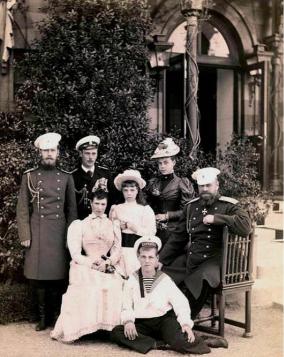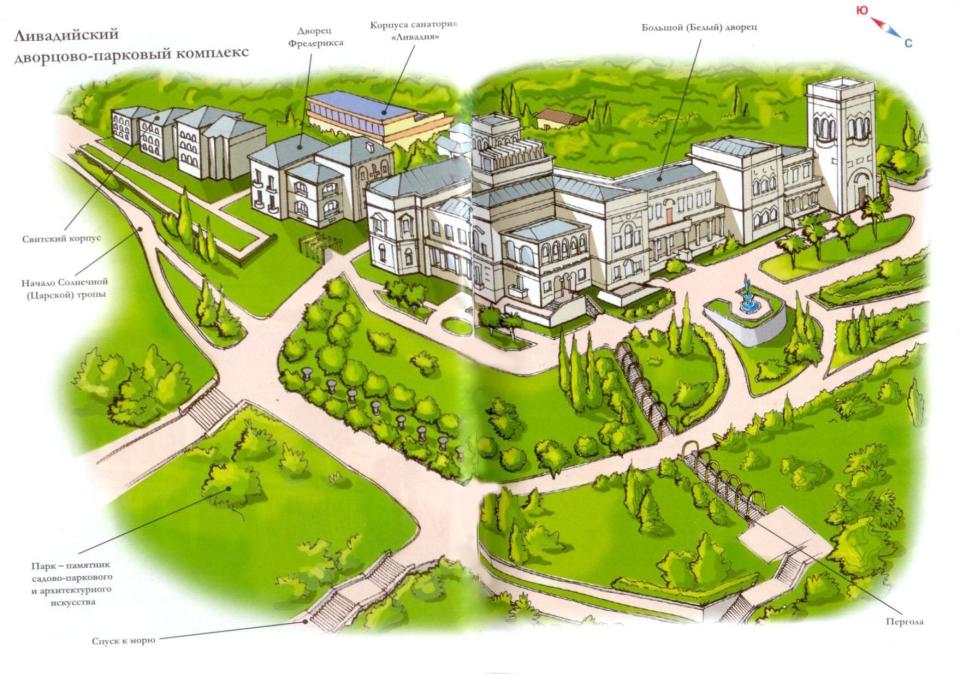
- •Livadia Palace
- ••Livadia Palace is a famous architectural landmark in
- •Construction and Architect
- •Architecture and Style
- •Layout and Purpose
- •Interiors and Decoration
- •Meaning and Symbols
- •Imperial and Global History
- •Soviet and Modern Use
- •• Livadia Palace has been restored many
- •Tourist and Cultural Value
- •Conclusion

Livadia Palace
A Masterpiece of Architecture and
History
From Imperial Russia to World Diplomacy

•Livadia Palace is a famous architectural landmark in
Crimea. It was built as a
summer residence for the Introduction Russian Tsars. In 1945, it
became the site of the Yalta Conference, where world
shaped post-WWII

Construction and Architect
•The current palace was built in 1910–1911 by architect Nikolay Krasnov. Tsar Nicholas II ordered it as a new residence for his family. The palace was finished in just 17 months — a record for its time.

Architecture and Style
•The palace combines Neo-Renaissance and Italian styles. It’s built from white limestone and has arches, terraces, and elegant columns. The design blends perfectly with the Crimean landscape.

Layout and Purpose
•The palace has three main sections: private rooms for the royal family, ceremonial halls, and service areas. It was designed for comfort and official events.


Interiors and Decoration
•The rooms are decorated with wood, marble, and gold. Notable spaces include the White Hall, dining room, and the Tsar’s study. Furnishings and art reflect the taste of early 20th-century Russia.

Meaning and Symbols
•Decorative elements show imperial power and religious faith. There are royal emblems, icons, and detailed carvings. Everything was made to show beauty and meaning.

Imperial and Global History
•The palace was the favorite retreat of Tsar Nicholas II. In 1945, it hosted the Yalta Conference with Churchill, Roosevelt, and Stalin. They made decisions that shaped the modern world.

Soviet and Modern Use
•After the revolution, the palace became a sanatorium. Later, it turned into a museum and historic site. Now it’s open to visitors and used for exhibitions and cultural events.
